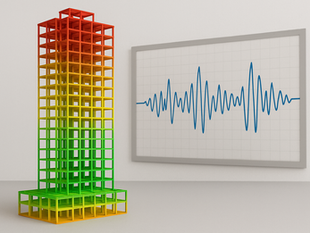
Adapting in the Sky: How High-Rises Can Evolve Over Time
0
6
0
Cities change fast. What begins as a commercial tower may, a decade later, need to house people instead of paperwork. Retail spaces become co-working hubs. Office floors transform into schools or apartments. And yet, so many towers are designed as if their program is permanent.
At ALD Architecture, we ask: what if flexibility was embedded from the very beginning? We support and advocate for this kind of design approach and would be excited to collaborate on future projects that prioritize long-term adaptability.

Building for Possibility, Not Just Purpose
True resilience in vertical design isn’t just about strength, it’s about adaptability. It's the ability of a building to respond to shifting social needs, economic cycles and urban rhythms.
Instead of locking in a single function, we focus on creating frameworks:
Open floorplates that allow for rearrangement
Column grids that support diverse layouts
Service cores placed to minimize disruption during change
Modular interiors that can be demounted or reused
These elements may not be visible from the outside, but they shape a tower's entire future.
Lifecycle Thinking in Vertical Design
Designing a tower isn’t just about the opening day, it’s about the decades that follow.
Lifecycle-based planning includes:
Long-term maintenance access
Phasing strategies for gradual transformation
Material durability vs. replaceability
Integration with evolving technologies
We ask ourselves: How can this space serve five functions in 50 years, not just one in five?
Real-World Shifts Already Happening
Around the world, buildings are already evolving mid-life:
Office towers in London have been retrofitted into luxury flats
Old hotels in Tokyo have become co-living spaces
Commercial cores in NYC have been reimagined as vertical greenhouses and schools
These projects prove that with the right spatial DNA, towers can transform, not become obsolete.
The Future is Flexible
In a time when cities must be both dense and dynamic, rigid towers are liabilities. The future belongs to buildings that don’t just rise, they adapt.
At ALD Architecture, we support adaptable high-rise strategies and are open to future collaborations that embrace this forward-thinking mindset.






